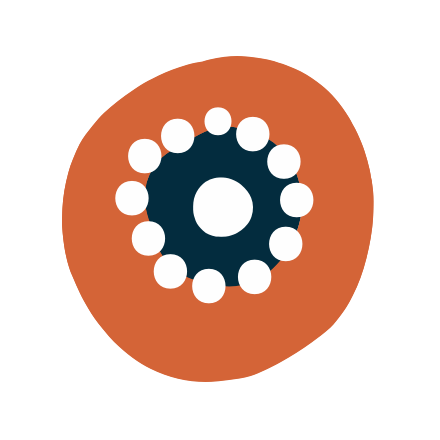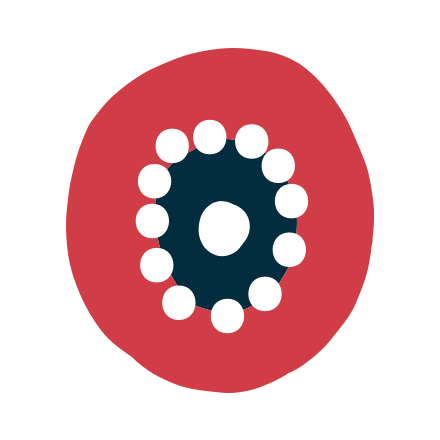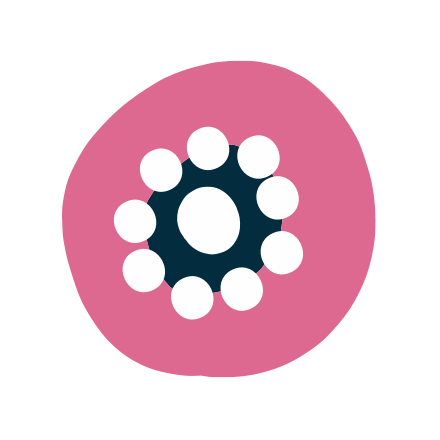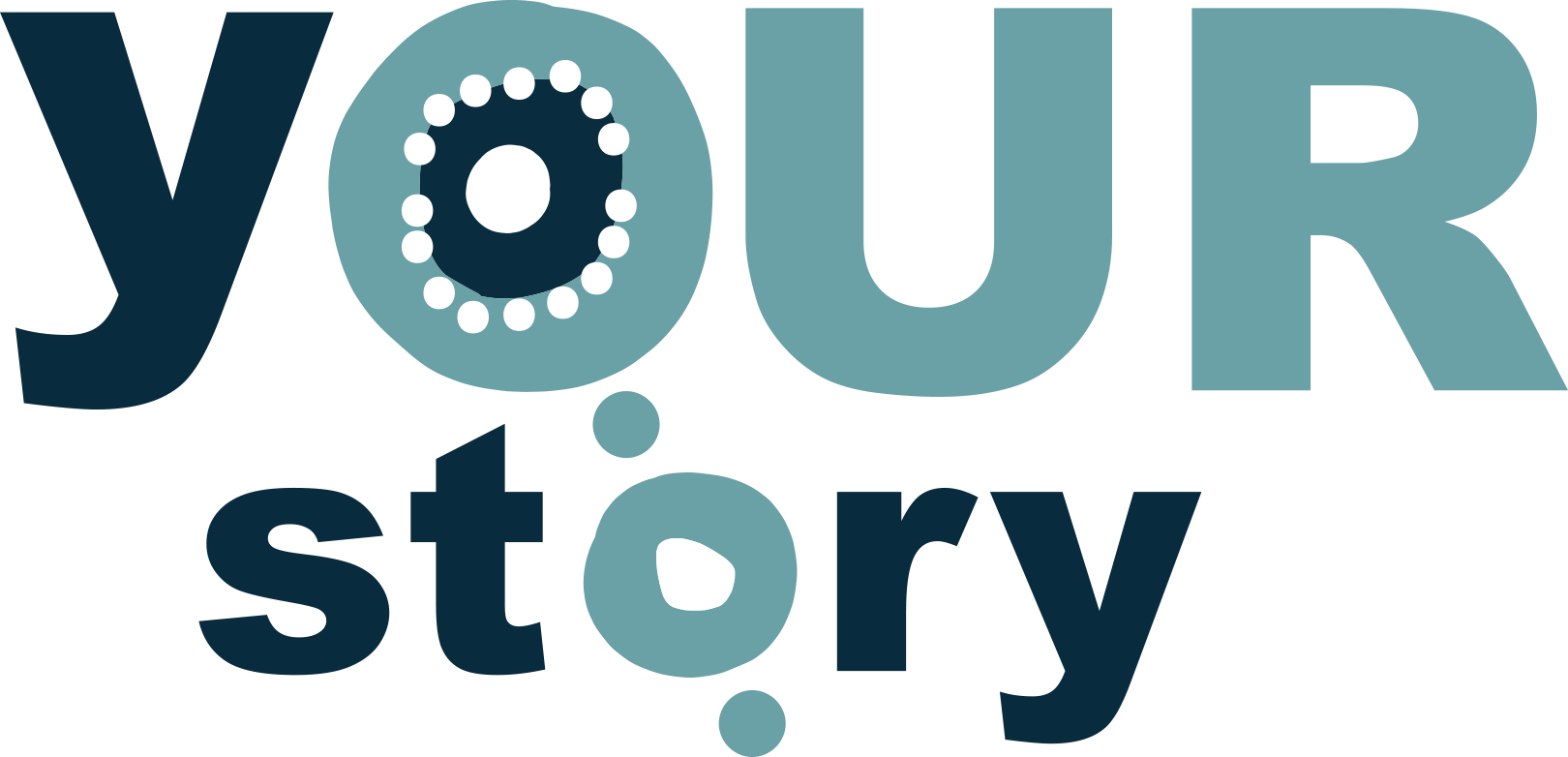Relationality in education means working through relationships. We connect through relationships, we form partnerships based on relationships. These relationships need to be carefully and deliberately developed and maintained.
You can skim across the surface like a water strider bug, but you won’t be able to effect change. To improve education and life outcomes for Aboriginal and Torres Strait Islander students, you need to be woven into their web. This doesn’t mean you lose your identity or need to be different, but you need to know learners, families, schools, teachers, people, country and history, and to identify or create your connection to all of these.
Our relationships need to be based on genuine personal/professional connections. They need to be built on reciprocity and to be beneficial to everyone involved. Relationships are the foundations of partnerships, and involve developing trust and respect, and valuing differences.
This page is built around a Reflect-Inquire-Reflect cycle.
- Start by using Statements of Intent to take a ‘snapshot’ of what you know and do.
- Reflect on your current practice and knowledge.
- Follow the Inquiry questions to explore potential changes to your practice.
- Then Reflect again on what you have learned and can do.
- Capture your reflections and learning and make plans.
Reflect
Where am I in our Story?
Everyone’s story is unique.
For each Statement, move the slider to indicate your current level of confidence in achieving the intention. A question will appear under each Statement that helps you gauge your current understanding.
Statements of Intent
Everyone’s story is their own.
Look at where you have positioned your sliders above – further to the left or right. Identify the areas that you currently know and do, and don’t know and do, in your teaching practice.
What do I know now?
What do I not know?
What do I do?
Everyone’s story can change.
Reflect on your responses using these prompts:
What credible sources is my knowledge based on?
- Sometimes we ‘just know things’ but our knowledge has come from somewhere. Reflect on the current sources of your knowledge.
What is causing gaps in my knowledge?
- Always probe further than your initial answer. For example, “I didn’t learn this at school” becomes “Why didn’t I learn this at school?”
Why am I doing some things and not others?
- We often just do things a certain way without asking why it’s that way and not another way. If you answer: “It’s how everyone else does it” take it further: “Why is everyone doing it that way”?
Inquire
What is my part in our story?
Everyone’s journey is their own.
Now you know more about what you know and do and don’t know and do, and why. Use the Inquiry questions and resources and strategies below to continue your learning journey.
Inquiry Questions
- Ways for schools to Acknowledge Country and Welcome people to Country need to be determined by consulting local Aboriginal and Torres Strait Islander people. This guide is from Victoria, but can be used to inform the development of local practices: Welcome to Country and Acknowledgement of Country: A guide for Victorian schools.
- In some places, the impact of colonisation has caused disagreement about Country and the people who live in the community. Navigating this requires awareness and sensitivity.
- What does your school currently do?
- What consultation with local Aboriginal and Torres Strait Islander people is this based on?
- In what variety of ways can Country be acknowledged in your school?
- The best way to find out about Country and how to respect ‘on Country’ stories is to talk to local Aboriginal and Torres Strait Islander parents and community members.
- Engaging with Aboriginal communities: Where do we start? has useful tips and links to help you identify who to contact in your local area.
- Inside and outside knowledge introduces the idea that there are protocols around who owns what knowledge, and who determines how it should be used.
- What strategies could your school implement?
- Across Australia, there are many ways that Aboriginal and Torres Strait Islander people relate to each other. This may be through kinship, or relationships. For all Aboriginal and Torres Strait Islander people, relationships are important. The best way to find out how local First Nations people relate to others is to talk to local First Nations people.
- Who could you talk to find out more about local First Nations ways of relating?
- How could your school respect these ways of relating and knowing each other, in governance, curriculum and teaching?
- This online Kinship Module has information about ways that some Aboriginal peoples relate to each other.
- Aboriginal and Torres Strait Islander Children’s Cultural Needs provides information about the cultural needs of Aboriginal and Torres Strait Islander children and provides a reflective framework for educators to think about how they can work in this space.
- What strategies could our school use?
- Aboriginal community engagement in primary schooling provides an example of a school-Aboriginal community unit of learning co-developed by teachers and Aboriginal community members, demonstrating how to embed Aboriginal and Torres Strait Islander perspectives and knowledge.
- What would our school need to do to make an activity like this happen?
- The Localities Embracing and Accepting Diversity (LEAD): School-based audit tool helps schools audit their current practice and provides strategies for improving practice.
- How does our school shape up in the audit?
- Who do we need to include in our conversations about this?
- What strategies could our school put in place?
Everyone’s journey is unique to place and people.
Identify who you could work with and the changes you could make in your practice.
How can I find out what I need to know?
- Seek Aboriginal and Torres Strait Islander sources and resources.
What changes can I make?
- Aim for the achievable.
Reflect
How do I continue our story?
Now that you have learned more and identified ways to change your practice, you have the opportunity to begin the reflection cycle again. Learning never stops!
- What do I know now? Can I expand my sources of knowledge?
- What else can I learn? What’s influencing the things I am learning?
- What can I do? Why am I choosing to do those things?
Next steps
Your learning journey is now well underway! Use the Reflect-Inquire-Reflect model to keep learning, to change practice, to work together with Aboriginal and Torres Strait Islander Peoples and improve educational outcomes for our students.
Continue to learn and choose another principle to explore from the menu at the bottom of the page. Enjoy your journey!
ACECQA. (n.d.). Engaging with Aboriginal Communities: Where do we start? [PDF]. Accessed at https://www.acecqa.gov.au/sites/default/files/acecqa/files/NEL/engaging-with-aboriginal-communities1.pdf
QCAA. (2018). Inside and Outside knowledge [webpage]. Accessed at https://www.qcaa.qld.edu.au/about/k-12-policies/aboriginal-torres-strait-islander-perspectives/protocols/inside-outside-knowledge
Queensland Department of Education. (2011). Embedding Aboriginal and Torres Strait Islander Perspectives in Schools [PDF]. Retrieved from http://indigenous.education.qld.gov.au/SiteCollectionDocuments/eatsips-docs/eatsips_2011.pdf
SNAICC. (2012). Aboriginal and Torres Strait Islander Children’s Cultural Needs [PDF]. Retrieved from http://www.snaicc.org.au/wp-content/uploads/2015/12/02932.pdf
Turner, A., Wilson, K., & Wilks, J. (2017). Aboriginal community engagement in primary schooling: Promoting learning through a cross-cultural lens [PDF]. Australian Journal of Teacher Education, 42 (11), 96-116. Retrieved from https://researchonline.nd.edu.au/cgi/viewcontent.cgi?article=1194&context=edu_article
University of Sydney. (2018). Kinship module [webpages]. Accessed at http://sydney.edu.au/kinship-module/index.shtml
Victoria Department of Education and Training. (2015). Welcome to Country and Acknowledgement of Country: A guide for Victorian schools [PDF]. Retrieved from https://www.education.vic.gov.au/Documents/about/programs/aboriginal/welcometocountry2015.pdf
VicHealth. (2015). Localities Embracing and Accepting Diversity (LEAD): School-based audit tool [PDF]. Accessed at https://www.vichealth.vic.gov.au/-/media/ResourceCentre/PublicationsandResources/Discrimination/VH_LEAD-Toolkit_schools_FORM.pdf?la=en&hash=C6E77F614A0992EC68FEE3DF1B46FD42CF55107D
Weeriana Street Media. (2015). Welcome to Country iphone app [webpage]. Accessed at http://www.welcometocountry.mobi/about/











